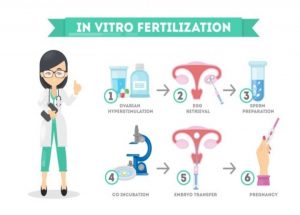Psychological Effects Of Infertility
The secrecy shrouding infertility makes what is already an emotionally-, financially-, and physically demanding process even harder. It helps perpetuate the aura of shame.
Infertility is a condition that affects about 1 in 10 couples worldwide.
But these myths and value judgements that make infertility more challenging for couples need to be questioned.
It is important to remember that infertility is not a taboo word.
It is time to look beyond the empty lap and understand, with empathy and awareness, the causes and reality of infertility. What an infertile couple needs most is support and reassurance, a safe space where they can choose to discuss it and seek help without feeling judged or stigmatized.
Infertility has a profound impact on women’s mental health and on the person as a whole. Physical, emotional, sexual, spiritual, and financial aspects of one’s life are all affected by this disease of the reproductive system. The most common mental health concerns reported by fertility patients are symptoms of anxiety and depression
Stress of infertility and interventions
Individuals who learn they are infertile often experience the normal but nevertheless distressing emotions common to those who are grieving any significant loss — in this case the ability to procreate. Typical reactions include shock, grief, depression, anger, and frustration, as well as loss of self-esteem, self-confidence, and a sense of control over one’s destiny.
Relationships may suffer — not only the primary relationship with a spouse or partner, but also those with friends and family members who may inadvertently cause pain by offering well-meaning but misguided opinions and advice. Couples dealing with infertility may avoid social interaction with friends who are pregnant and families who have children. They may struggle with anxiety-related sexual dysfunction and other marital conflicts.
Stress and sadness are often part of coping with infertility – dreams of a family are altered, the relationship with your partner may be tested, and the medications required during treatment can play havoc with mood. One question to ask is whether feelings of being sad and tearful are episodic and tied to specific events such as a hormone treatment, a test result, or a friend’s pregnancy announcement. These feelings are important to acknowledge and should be addressed through counseling, a support group and/or self-care.
Depression is different and ranges from mild to major and may be recurrent. Mild depression includes feeling tired and sad.
Common signs of moderate to major depression include some or all of the following:
- Sadness that persists, lasting for weeks or months
- Feelings of hopelessness and helplessness
- Frequent crying
- Often feeling irritated or intolerant of others, especially people who you used to enjoy being around
- Lack of motivation, struggling to get things done at work and/or home
- Difficulty sleeping, either sleeping too much or insomnia
- Problems with eating, overeating or low appetite
- Struggling with experiencing pleasure in life, including a lack of interest in sex
- Frequent feelings of anxiety or worry
- Thoughts of dying, self-harm, or suicide – seek help immediately!
Therapies that may help
Many patients find a way to cope on their own, or they seek support from friends, family, or one of the many infertility support groups now available in person and online. But others need additional help.
Counseling
Referrals for short-term counseling are common — especially to increase coping strategies, or to provide help with making decisions (as patients face many choices during treatment). Patients who experience prolonged changes in mood or sleep patterns or who have relationship problems should seek a more comprehensive evaluation, as these may be signs of anxiety or depression.
Ideally, counseling should begin before patients start infertility treatment, as some studies — though not all — suggest that addressing psychological factors such as depression, anxiety, and stress may help increase the chances of giving birth to a child. Clinicians working with infertile patients can provide information on how to manage fatigue, reduce stress and anxiety, and improve communication with others.
Psychotherapy
Specific types of therapy may also be useful. For example, studies have concluded that interpersonal therapy (which focuses on improving relationships or resolving conflicts with others) and cognitive behavioral therapy (which identifies and tries to change unhealthy patterns of thought or behavior) can give relief to infertile patients suffering from mild to moderate depression. Researchers have shown that psychotherapy can be helpful for anxiety or depression whether delivered individually, to couples, or in a group.
Relaxation techniques
Given that infertility and its treatment often cause considerable stress, experts recommend various relaxation techniques. For example, mindfulness meditation, deep breathing, guided imagery, and yoga promote stress management.
For a couple to feel confident in seeking solutions and deal with infertility head-on, they must not feel like their personal identity and social relationships are compromised by infertility. Taking the taboo and stigma out of infertility would truly transform the infertility journey of couples. It would give couples the strength to take action to address infertility and move forward.
There are many of you who don’t want to talk about it. Who feel that such matters are private, or that such self-exposure will only heighten the pain. If that’s the case, then, yes, of course, you shouldn’t feel obligated to share your experience. But there are plenty of you out there who want to talk about it. Perhaps even yearn to talk about it, if only we felt that was all right. Well, it’s up to you to make it all right. You can make it feel right and actually talk and cry about it. It’s up to you to treat it as the common and complicated part of the human experience. And that it very much is.
Also read – Infertility and difficulty in conceiving










